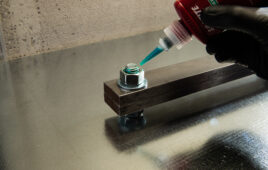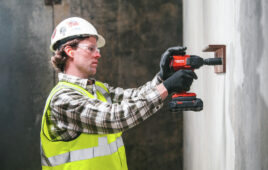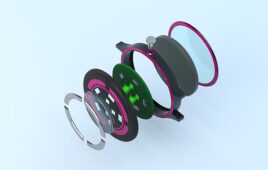Typically, military standards are more demanding than standards intended for civilian applications. The same can be said for adhesives that meet these standard. To this end, MIL-STD adhesives offer higher performance, particularly in demanding environments such as in extreme temperatures or corrosive environments.
 However, it’s first important to ensure a product meets the requirements of a particular application. If it requires certain features for use in aerospace or construction, for example, choose an adhesive designed to meet it rather than getting stuck on its military-grade status.
However, it’s first important to ensure a product meets the requirements of a particular application. If it requires certain features for use in aerospace or construction, for example, choose an adhesive designed to meet it rather than getting stuck on its military-grade status.
In some cases, civilian standards may have more demanding specifications, especially in relation to toxicity. So, it’s not necessarily true that MIL-STD will give improved performance in every application.
Adhesives should always be selected based on the intended use and those requirements.
Having stated that, one example of a military standard used for adhesives is the thermal stability testing specified by MIL-STD-883. Epoxy adhesives that meet this standard are often the best choice where thermal stability is important, such as for satellite systems, oil and gas drilling equipment, and laser devices.
This standard provides a rigorous test of the high-temperature serviceability of an adhesive, using Thermogravimetric Analysis (TGA). Test pieces are heated in a nitrogen atmosphere from room temperature to 200° C at a rate of 10° C/minute.
The thermal stability of the adhesive is determined by its change in mass when heated, it must not lose more than one percent. Important performance parameters for thermally demanding applications include the maximum service temperature range, thermal cycle ramp speeds, and thermally induced stresses in the bonded joint.
Epoxy, cyanoacrylate, structural acrylic, silicon, and adhesive tape are all available in MIL-STD products. For aerospace applications, military, ASTM, and SAE standards must all be specified.
Other examples of military standards where adhesives may be tested to include MIL-A-46146B, MIL-A-46050C, and MIL-S-46163A. MIL-A-46146B ensures that adhesives and sealants are noncorrosive for use with sensitive metals and equipment. MIL-A-46050C demonstrates that rapidly curing cyanoacrylate meets a range of performance criteria. MIL-S-46163A covers thread lockers used for military applications in extreme environments.





Tell Us What You Think!